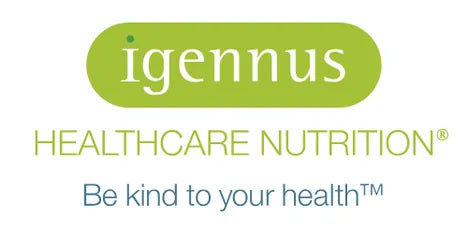There are thousands of proteins in the body, making up roughly 17% of our body weight. It is used in the body to build important structures such as skin, blood and muscles; growth and maintenance of our bodies and all structures contained within it are therefore reliant on a constant supply. It also provides the building blocks for our hormones, immune system, aids the digestion of food, and supports normal brain function, to name just a few of the countless functions. Long gone are the days when protein was considered only necessary for supporting muscle mass. This article not only highlights the importance of protein in the diet, but also provides a guide to help you consume the correct amount based on your body weight.
Along with carbohydrates and fat, protein is a macronutrient, which means it’s required in large amounts in the diet as a source of energy to fuel our bodies. Whilst it’s not the body’s favoured source of energy (unlike carbohydrates which can be burnt much more rapidly), it still packs 4 calories per gram.
Protein is broken into 20 amino acids, nine of which are considered ‘essential amino acids’, meaning we need to obtain them through the diet as the body does not have the ability to make them. There are a further eight ‘conditionally essential amino acids’ that the body can make unless we are in a state of stress or illness, at which point they become ‘essential’. The remaining amino acids are ‘non-essential’ as the body has the ability to manufacture them without dietary input.
Whilst protein is made up of amino acids in various amounts and patterns, each amino acid also has its own functional use; for example, theanine, present in green tea, induces a feeling of calm, enhances mood, and reduces the perception of stress.
Now that we have established the importance of protein, how much do you need?
We lose protein daily – through sweat, shedding of cells, energy expenditure, detoxification and the breakdown of protein in our bodies. The current standard protein requirement was set 15 years ago and suggests anyone over the age of 18, regardless of age, gender and physical activity, requires 0.8 grams of protein from their diet per 1 kilogram of body weight. Therefore, an adult weighing 70kg would require 56 grams of protein (70 x 0.8 = 56) and an adult weighing 85kg would require 68 grams of protein (85 x 0.8 = 68).
Getting the balance right
Protein deficiency is uncommon in the UK as we obtain it from a wide range of food sources. As insufficient protein may impair energy levels, immunity and blood sugar balancing, it is recommended we obtain a minimum of 0.8 grams of protein per kilogram of bodyweight to ensure a deficiency state doesn’t occur. Whilst this is a great benchmark, there are times when our bodies do require more than this; during pregnancy and lactation, for example, and throughout childhood, in times of stress and illness, and when we are more physically active.
When protein requirements increase
Exercise does increases your need for protein and if your diet does not provide adequate amounts, the body may break down lean tissue in order to access amino acids required for the repair of muscle damaged during exercise. The International Society of Sports Nutrition advises protein intake should increase to 1.4-2 grams of protein per kilogram of body weight depending on level and type of physical activity. Some circumstances may require athletes to increase this five-fold for a short period of time to further enhance ability.
Similarly, during times of stress and illness, the body’s requirements for protein also increases and around 1.4 grams of protein per kilogram of body weight should be obtained.
If you are not active, you should calculate your protein requirements based on your ideal body weight for your height, as protein in excess of your needs may be stored as fat. The World Health Organisation advises that it is safe to increase your protein intake up to twice your daily recommended intake, with no negative side effects. If you are concerned with weight loss, you will be happy to learn that not only is protein satiating but it also aids healthy weight loss.
Whilst supplementing protein has become commonplace, you shouldn’t actually need to supplement as long as you achieve your intake from food. They are, however, a useful tool if you have a high requirement for protein that cannot be met through diet alone. Eating a variety of foods should also negate the need to supplement with specific amino acids.
The effects of too much protein
Whilst insufficient levels of protein may be problematic, concerns also arise when too much protein is ingested, as it places additional stress/exertion on the liver and kidneys (where protein is broken down and end-products are excreted), and the heart (a high protein diet is associated with an increased risk of high cholesterol and heart disease). It is important to note that the source of protein and your overall diet is important here. Eating a nutrient-rich diet containing lots of fresh vegetables and fruit will ensure the liver is nourished and able to function optimally. Keeping hydrated, especially if you are exercising or in a hot climate, will provide support to the kidneys to filter waste products. Obtaining more oily fish, organic and lean meat from grass-fed animals, and plant protein such as beans and legumes, and less fatty and processed meats such as sausages and bacon, will reduce your exposure to saturated fats associated with increased risk of high cholesterol and heart disease.
Bone health is another consideration with increased levels of protein, as some studies suggest a high protein diet leads to higher excretions of calcium. This is thought to be a result of calcium (an alkali compound) being leached from the bones to buffer some sulfur-containing amino acids. It is probable that the increase in calcium excretion is a result of increased calcium intake from protein, and studies have in fact shown that increasing animal protein has a positive effect on bone wasting in elderly populations.
Food sources of protein
Sources of protein include all animal foods; 100 grams of chicken breast provides 31 grams of protein, a medium-sized egg provides around 6 grams of protein, and 140 grams of salmon provides 28 grams of protein. These and other animal proteins are considered ‘complete proteins’ as they contain all essential amino acids in the amounts required by the body, with foods such as milk and eggs scoring a protein digestibility corrected amino acid score (PDCAAS – a measurement of protein value for humans) of 1, the maximum score.
Protein is also found in plant foods; 100 grams of tofu provides 8 grams of protein, 100 grams of soybeans provides 36 grams of protein and 100 grams of lentils provides 19 grams protein. Plant protein is usually considered to be ‘incomplete protein’ as it is unlikely to contain the full range of essential amino acids in desirable amounts, with black beans scoring 0.75 on the PDCAAS, and peanuts scoring 0.52, although soya bean is almost a complete protein with a score of 0.94, in comparison to beef which scores 0.92. As plant proteins score lower generally, it is essential in the case of vegetarianism and veganism to eat a wide range of plant protein to ensure a full range of essential amino acids are being consumed.
ESSENTIAL CO-FACTORS
To utilise protein, the body requires zinc, vitamin B6 and vitamin B12. Zinc and B6 can be obtained from animal sources (beef and turkey) and plant sources (sweet potato, pumpkin, sesame and sunflower seeds), but it is difficult for vegetarians and vegans to obtain vitamin B12 from the diet as it is contained predominantly in animal foods (sardines, salmon and lamb); a supplement is therefore recommended. Igennus Super B-Complex is a vegan-friendly supplement containing the full spectrum of B-vitamins in bioavailable form, with additional vitamin C, whilst Pure & Essential Advanced Multivitamin & Minerals provides a vegetarian form of 22 essential vitamins and minerals including zinc, B12 and B6.
Whilst it’s important to eat an adequate amount of protein to meet your requirements, as always, balance is key. Ensure you are achieving at least your minimum requirements each day from a variety of sources. You can log your protein intake by reading the protein content on food labels or using an app such as My Fitness Pal. You can’t go far wrong eating a portion of protein for each meal, with a few portions of vegetables, a good quality fat source such as an avocado, an olive oil dressing or oily fish, complex carbohydrates such as brown rice, sweet potato, beans or whole grains, and a supplement for the vegetarians and vegans among us. As long as your heart, kidneys and liver are in a healthy state, you shouldn’t worry about protein causing any damage. You may need to amend your protein intake if the function of these organs is compromised; the Igennus website provides a list of nutritionists in your area for further advice on your personalised nutrient requirements.








